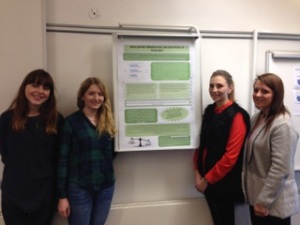Ramon Inglada, Assistant Professor in Spanish and Translation Technologies in the Languages and Intercultural Studies department at Heriot-Watt University, was delighted to accept the invitation from the Institute of Translation and Interpreting (ITI) to talk about the ever complex issue of payment for Machine Translation (MT).

This invitation came after a successful presentation on MT given by Mr. Inglada for ScotNet, the ITI Scottish regional network, which covered general concepts related to MT (from types of MT engines to quality levels).
The ITI presentation, which attracted an online audience of almost 200 translation industry professionals, was more specifically focused on MT pricing models, with the general aim of raising awareness about the different alternatives and recent developments in this area.

The presentation began by highlighting the complexity of this topic given all the different factors at play. It made the case for professionals working in machine translation post-editing (MTPE) projects to move away from the idea of having a unique word-based rate for all such projects and to explore the possibility of charging a dynamic per-word or hourly rate based on project conditions (such as quality of the source content, quality of the MT output, language combination and deadline). The concept (developed, among others, by Corinne McKay) of using objective data to set translation rates based on a calculation of billable hours and a target hourly rate was also discussed.

The webinar then proceeded to analyse different well-established pricing methods currently being used in the translation industry in order to establish MTPE pricing models (with options including proofreading rates, dynamic ranges for specific MTPE rates, hourly rates and Translation Edit Rate, also known as TER). After this, other more novel alternatives in this field were mentioned (including the potential use of pricing algorithms or special higher rate percentages for certain content), as well as the possibility of introducing a model of standard pricing for this type of projects across the industry.

The presentation gave rise to a very lively 1-hour long Q&A session, with plenty of challenging questions and insightful audience comments. After more than 2 hours the webinar was brought to a close, with the general feeling that, even after a very extensive and useful discussion and exchange of ideas, MTPE pricing models remain a complex and multi-faceted issue that will undoubtedly continue to be the subject of passionate debate for many years to come.







